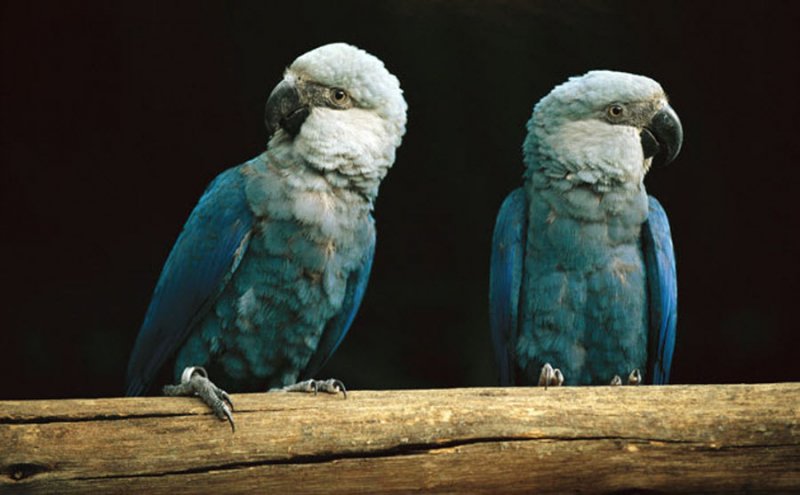Blu and Jewel are Gone
October 15, 2018
A dazzling blue bird made famous in Blue Sky Studio’s 2011 animated film, “Rio,” the Spix’s Macaw is now extinct in the wild. The last sighting was in 2016.
The little blue macaw, a species from Brazil, was first discovered in 1638 and was officially named after Johann Baptist von Spix, the first biologist to catch one of the birds.
The loss has impacted the surrounding environment in various ways. The place inhabited by an animal which is extinct — or even endangered — is grounds for an entire ecosystem to become unbalanced.
One of the biggest concerns about extinction is the corruption of the food web — the hierarchy of animal’s food sources. When species included in the web, which is every animal in the area, are no longer there it causes issues. For example, most macaws have diets of fruit, nuts, insects, and snails. When the Spix’s and other like-predators are no longer consuming their food sources, animals they’d usually eat are able to grow their numbers quickly and may easily exhaust the resources in the area. Likewise, the macaw’s predators may be lacking a source of food.
The emotional impact of this extinction is greater than others because it was unexpected and the birds had developed such a large following from the animated film. For some people, imagining the world without birds like Blu is saddening.
The Spix’s isn’t the only animal people are upset to see vanish. There are a multitude of others. In Georgia alone, there are plenty of endangered or near-extinct animals. The Red-Cockaded Woodpecker and the Amber Darter are just two of a huge group of endangered animals around us.
Jeffrey Spratt, Cartersville High School’s AP Environmental Science teacher, was happy to let us know that there is a solution to this. The Spix’s, just like many other species, are part of a reintroduction program that aims to effectively “reverse” their extinction. Reintroduction programs place previously captive groups of animals in their natural habitat in hopes they will naturally produce offspring. Some groups, such as the ones handling the Spix’s, keep a few in captivity to gain large numbers before they release the species in hopes of repopulation.
Over the course of history, humans have been responsible for the extinction of many species, so environmental scientists do what they can to mitigate the impact humans have had on Earth. Environmental science aims to bring light to various species on earth, maintain ecological balances, and educate people on the consequences of what will happen if we cannot keep ecological balance.
The macaws are expected to make a return into the wild around 2021.



